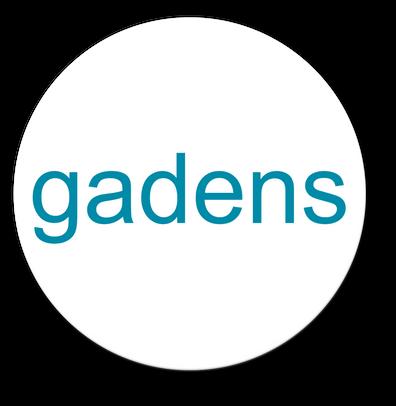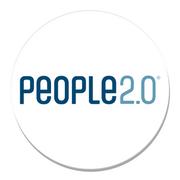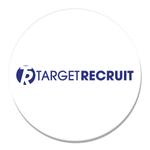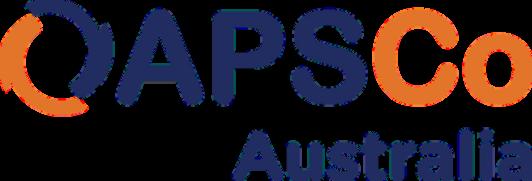RECRUITMENT RECRUITMENT&&CO CO










































Last month saw the return of our annual conference, Emerge It’s been 4 years since we launched Emerge and almost 5 since I took the role as MD of APSCo Australia. It feels like we’ve had every possible challenge thrown at us in those years; from the pandemic and lockdowns to return to work, remote work, hybrid work and the new world of work.
Lesley Horsburgh Managing Director APSCo AustraliaWe navigated casual reform in 2021 only to find ourselves back at the beginning this year among some of the most significant IR reform in decades. But throughout every curveball, APSCo and its members have responded with calm when needed and rigour when appropriate.
We’ve doubled our membership, hosted literally thousands of guests across webinars, meetings and major events and built a thriving community that recognises the APSCo badge of quality
And our investment into our lobbying partnership with Cornerstone Group has given the professional staffing market an independent voice to Government- and seen us participate in dozens of consultations and submissions on behalf of our Members
I am a firm believer that we must reflect on our achievements, and as we begin the new financial year, we now turn our attention to the annual Awards for Excellence
It’s been a tough year, with most of us ‘heads down’- but now it’s time to look up, celebrate your business, its people and our profession.
I’m proud that our awards welcome all professional staffing firms, member or not - because it’s all about being the best in your market not just within our membership.
Judged by an independent panel of experts, the Awards for Excellence is your opportunity to end the year on a positive note.
I hope to see you and your team at our Gala Dinner in Melbourne on October 17.
LESLEY HORSBURGH
APSCo Australia Managing Director

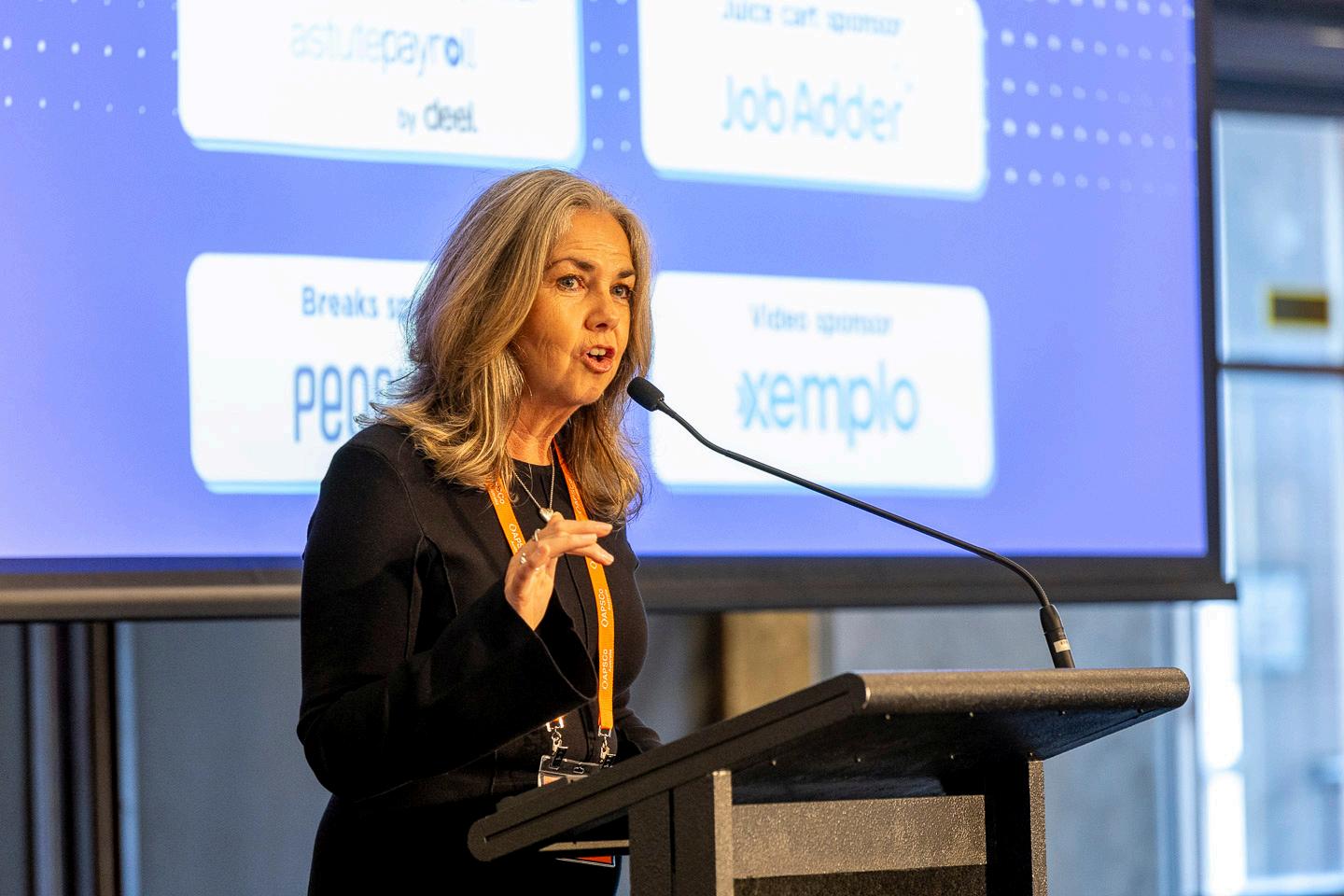
This quarter has been all about conferences for me. I've attended the Bullhorn conference in Sydney, the Talent X conference in Melbourne, and just last week, (saving the best to last) our own APSCo conference Each event featured different speakers aimed at different audiences, but a common theme emerged: we're in the thick of the cycle where the economic challenges are felt The response at all three conferences was a shift in focus toward business development and training.
One interesting point that stood out at all three events was the sense of recruitment companies grappling with the current economic climate Presentations highlighted how job flow and gross margins whether contract margins or permanent fees have dropped to their lowest levels according to the data presented.
What I found particularly compelling is the need to adopt a broader perspective Many of the presentations focused on short-term figures, often over three-year spans However, we need to consider the recent two-year bubble following the COVID-19 boom. Many recruitment firms treated this period as the new normal, expecting business to continue at that heightened level. But if we smooth out these numbers and adopt a five-year view, it becomes clear that the anxiety surrounding the recent drop in business flow should be managed in the context of economic cycles coming off huge (artificial) highs.
The post-2021/2022 boom period was an anomaly, an artificial spike that isn't sustainable. Comparing current job flows to those seen during the boom is unrealistic My advice to everyone is to go back to basics: maintain a simple sales process, treat your clients and candidates well, and provide a level of service that was perhaps neglected during the boom years. Recognize that the state of the market during the boom was temporary, and a healthy dose of realism will show that long-term market trends are definitely at the lower side but are relatively stable and for many beginning to trend up again
I think we need to look to the new financial year through the lens of a more stable environment than the one we experienced moving into the 2024 financial year. Manage our business sensibly, don’t overhire just in the hope of winning more business. Instead, focus on systems, sales and marketing, processes, learning and development, and improving management capabilities These should be the core metrics we run our businesses by.
Wishing everyone a strong finish to the year and looking forward to catching up soon.
STEVE SMITHDirector, Sirius People, APSCo Australia Chair

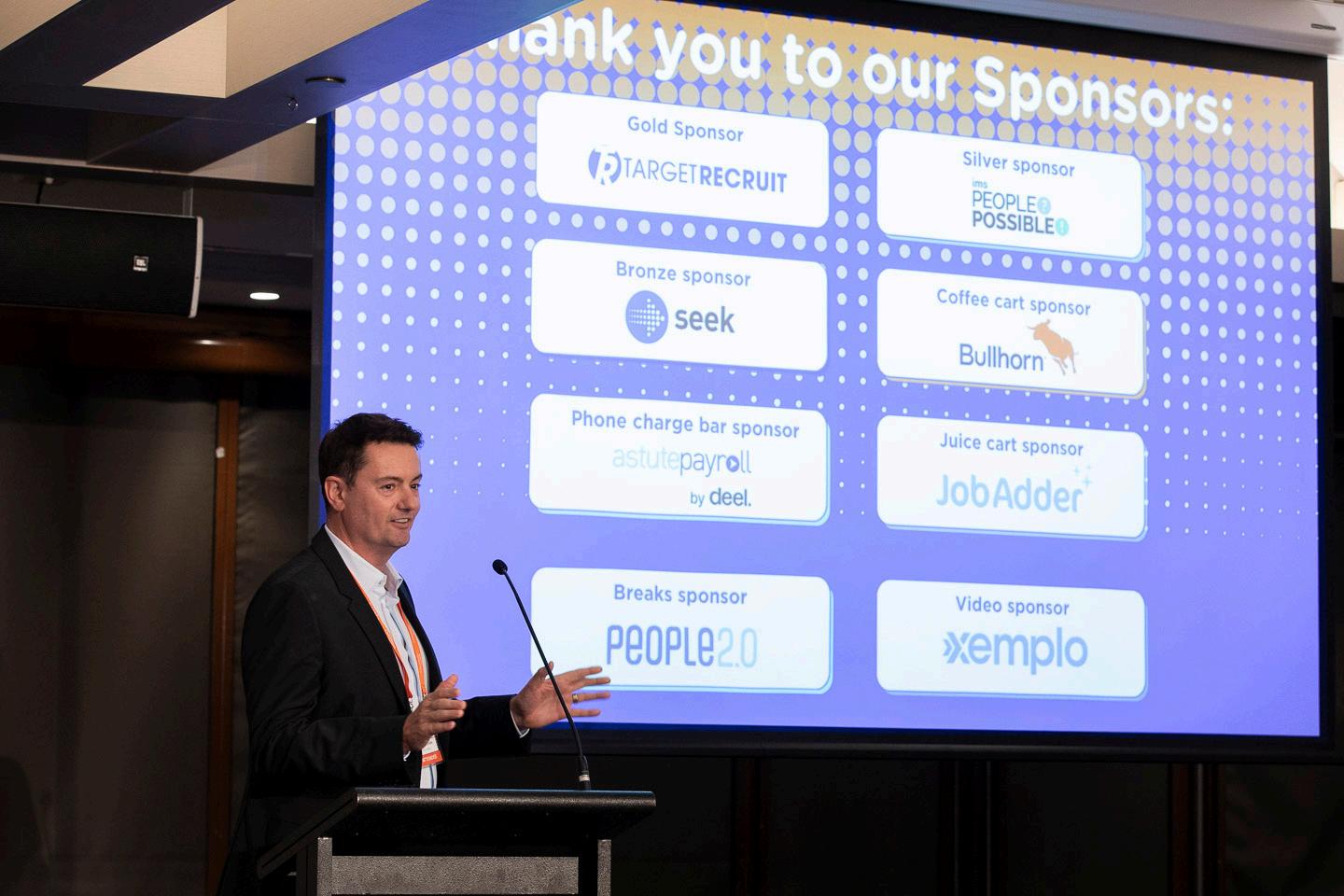
Tania Evans, WorkPro’s CEO, generated significant interest at Emerge 2024, discussing how agencies can adopt AI to drive compliance efficiently.
Since the conference, we've received many questions about the future of compliance using automation and AI
We're now exploring Tania’s insights on accelerating screening, automating compliance, and improving the candidate experience to ensure job-readiness, with technology and AI.
Pre-employment screening and compliance management remain major administrative burdens in hiring These processes increase time-to-hire and operational costs; however AI and digitised services have reduced these barriers, enabling robust screening while lowering hiring risks and time
As a practical example, WorkPro’s AI model will allow customers to drive operational efficiencies by being able to digitally validate a candidate’s identity, confirm their Australian citizenship or right to work, and complete an Australian police check within a matter of minutes.
Using an integration between WorkPro and the ATS, the outcome of checks can lead to potentially being used to inform or automate the next steps in the hiring process within the ATS
This culminates in creating a significant operational gain for hiring teams and delivers a valuable experience for the candidate, building and maintaining significant job-readiness.
AI also enhances document verification through the application of Biometric Facial ID, Optical Character Recognition (OCR), and Document Verification Services (DVS), ensuring authenticity and triggering re-checks as needed
The adoptive process also eliminates document storage needs, boosting the adherence to compliance, data security and integrity
WorkPro’s AI strategy also includes fraud detection using Biometric Facial Verification and document analysis to detect deepfakes, mitigating digital identity and hiring risks.

Our long-term AI initiative aims to predict and suggest preemployment and compliance programs based on a Large Language Model, establishing best practices for organisations
To find out more and to stay updated on WorkPro’s AI strategy and user cases, explore our free online resource hub, or contact us to discover how AI can become a strategic part of your organisation’s compliance strategy.
Embrace the future of recruitment and compliance with WorkPro, and ensure your organisation remains competitive, compliant, and jobready.
The 2024 Microsoft and LinkedIn Work Trend Index report highlights the transformative impact of generative AI in Australian workplaces, revealing cultural shifts and essential actions for businesses and employees. The report, based on data from 31,000 knowledge workers across 31 countries, shows that 84% of Australian workers use AI, surpassing usage in Europe and North America.
Key Themes and Actions for AI Integration:
1. Employee Demand for AI: Australian employees are proactive in AI adoption, with 84% using generative AI, significantly higher than the global average of 75% 80% of Australian leaders recognize the necessity of AI for competitiveness, yet 70% feel unprepared for its implementation
Many employees bring their own AI tools to work, a trend spanning all age groups, emphasizing the need for businesses to harness this momentum for ROI
2. AI’s Impact on Careers:
AI is influencing job markets, with 87% of Australian hiring managers planning to expand their workforce, and 76% of professionals considering job changes in 2024 for better pay and work-life balance
Australian leaders highly value AI skills, with 75% unwilling to hire candidates lacking them, although only 39% of LinkedIn users have received companyprovided AI training
Consequently, professionals are independently enhancing their AI skills, as evidenced by a significant increase in LinkedIn users adding AI skills to their profiles
3. Rise of AI Power Users:
AI power users, who extensively utilize AI, save over 30 minutes daily and reorient their work processes In Australia, power users are more likely to receive communication from CEOs about AI’s importance compared to global counterparts
There is a need for greater AI experimentation and training in Australia, as only 19% of power users experiment with AI compared to 68% globally
New Microsoft Copilot Innovations:
Microsoft has introduced new features in Copilot for Microsoft 365 to enhance AI usage: Auto complete: Provides detailed suggestions to improve prompts
Rewrite: Transforms basic prompts into rich ones
Catch Up: Offers personalized insights and recommendations
Copilot Lab: Allows creation and management of tailored prompts
To support AI skill development, LinkedIn offers over 50 free learning courses
The full Work Trend Index Report and more insights on AI's impact on the labour market are available on WorkLab and LinkedIn
For additional resources related to these announcements, visit the Microsoft microsite


Entries are open to all companies in professional staffing and recruitment now and close on Friday August 9
Finalists will be announced from Thursday September 5.
Winners will be announced at our Gala Dinner on Thursday October 17 at Carousel, Albert Park in Melbourne.

Click on the badge to view the entry form.



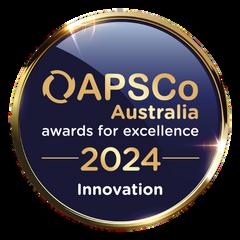
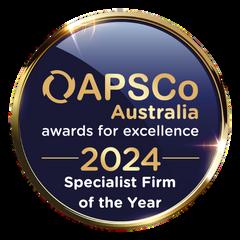
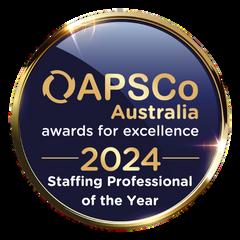


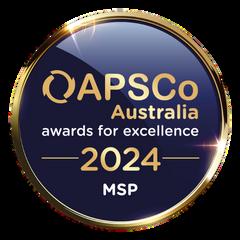


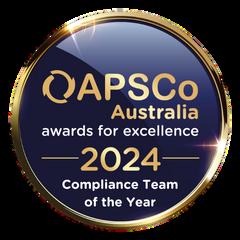

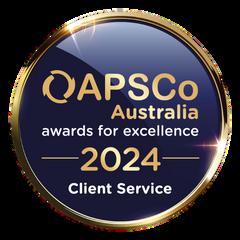
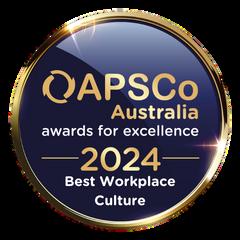


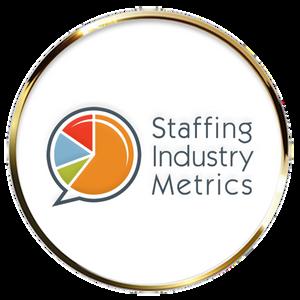



StepH Healy
Facilitator

Sydney
July 3 & 4
REGISTER HERE
Perth
July 17 & 18
REGISTER HERE

Melbourne
August 7 & 8
REGISTER HERE
It’s difficult with all the Technology, Applications, Automation, Artificial Intelligence (Ai), Data Intelligence, Chatbots etc., that are constantly being promoted to the recruitment industry. We must wonder if we are in the technology business or the recruitment business?
 John McCluskey Managing Director Whizdom APSCo Director
John McCluskey Managing Director Whizdom APSCo Director
The line can be blurred at times, but I would encourage people to leverage off technology for those repetitive process tasks, so consultants can focus more on the human interaction, or why are we here.
Do people really want a bot and Ai managing their careers and substituting one of the few remaining personal interactions to find them the ideal role and cultural fit for their careers.
Do clients want bots and Ai telling them who they should and shouldn’t employ, devoid of any empathy, cultural awareness, communication?
I maybe a bit old school, but what you have to love about the recruitment profession is building that personal interaction with Candidates and Clients to make that connection that adds value to both parties and the personal satisfaction for recruiters knowing the difference they can make with a successful placement.
Very few of us chose recruitment for a career and surprisingly that is also true for many other professions that people end up in. Often this is due to a third-party introduction that saw qualities and passions that a bot or Ai cannot sense
A human has the emotion and aptitude to think unilaterally to make these disconnected connections
A good friend of mine spent much of his career driving taxis and working at the Executive level in the public service and absolutely hated turning up to work and was depressed.
To cut a long story short he ended up through a referral into a job with Bunnings and absolutely loves it.
Who would have made that connection other than a human?
Recruiters don’t underestimate yourselves you are important, valuable and who else is best to unwind the many complications that a human-to-human interaction requires other than a human
The recently released 2024-25 Federal Budget has stirred up a lot of conversation due to its headline forecast surplus of $9.3 billion dollars. However, as with any budget announcement, there are both positives and negatives to consider.
 Anthony Whyte Managing Director
Talent International APSCo Director
Anthony Whyte Managing Director
Talent International APSCo Director
One major theme of the budget is the focus on "Building the Australia of Tomorrow", with ambitious plans to construct 1 2 million new houses within five years and investments in industries that could potentially make Australia a clean energy superpower
However, there are concerns regarding the economy, with a forecasted growth of just 1 75 per cent this financial year and the debt burden expected to surpass one trillion dollars in the next two years.
Unemployment is also expected to rise while inflation is predicted to moderate.
The government has placed a significant emphasis on protecting Australia, evident in the billions allocated to the Defence Sector including boosts in spending on long-range strike capabilities, the navy's new surface combat fleet, and a significant contribution to enhancing collective security in the Indo-Pacific region
Despite these investments, families may continue to struggle as inflation remains a real threat
Additionally, there have been some positive changes in areas such as superannuation, with up to 22 weeks of payments for more than 180,000 recipients of Commonwealth parental leave payments starting next year
There is also a plan to wipe $3 billion worth of HECS debt for over three million Australians, providing some relief for those burdened by student loans.
The budget also focuses on industry development, with initiatives like the Future Made in Australia policy to support Australian innovation and industry, including clean energy and advanced manufacturing
Furthermore, there are plans to build the world's first fault-tolerant quantum computer in Brisbane and investments in areas such as AI, a new National Innovation Visa, and regulatory reform initiatives
However, the budget does not address all concerns For instance, while there is a significant investment in housing, more needs to be done to support affordable housing solutions
Additionally, the significant brain drain from states like South Australia is a cause for concern, with predictions indicating a continued exodus of skilled workers to other parts of Australia in the coming years.
In conclusion, while the 2024-25 Federal Budget has some positive initiatives and investments, there are still areas that require attention and improvement to ensure a prosperous future for all Australians.
The recruitment industry thrives on activity and productivity, yet simply doing more isn't the answer to drive results. To succeed, we must channel our efforts, recognising the unique demands and nuances of different desks - be it permanent or contracting, established markets, or new ones.
It’s about steering towards higher value activities that deliver more meaningful outcomes – and avoiding falling into the ‘busy fool’ trap in the process
Here are 3 things to focus on when doing more is not enough
What activity is right for your market?
First, it's crucial to understand the intricacies of each recruitment segment. Temp and perm desks operate under distinct dynamics.
Temp recruiters focus on high volume and speed, whereas perm recruiters need to cultivate long-term relationships and exclusivity
Established markets come with their own set of challenges, requiring deep market knowledge and strong client relationships.
In contrast, new markets demand robust market research and innovative strategies.
By pinpointing these critical areas, you can direct your team’s efforts where they will have the most significant impact.

Leaders who are “in the market” have never been more important
Leadership is the cornerstone of this strategic focus The right leaders can inspire, guide, and develop their teams effectively.
However, having the wrong leaders can stifle growth and learning. It’s crucial to ensure that the right leaders are leading the right people.
Misaligned reporting structures where team members aren't learning or growing under ineffective managers is a recipe for disaster
Clarify the leadership roles and responsibilities so they know what they are expected to do and how their success will be measured.
Stephanie Healy Founder and Chief Executive Officer at One RecruiterWFH is not a trust issue, it’s a learning issue
Those fortunate enough to have such leaders “in the market” should capitalize on their expertise
Shadow their calls and meetings, create mentoring relationships, embrace feedback and coaching spanning all roles. Many recruiters and leaders lack the necessary skills and experience needed to thrive in today’s market. Continuous learning and development is essential to overcome this, and this often requires being physically present in the office to observe, listen, and adapt.
Remote work hampers this kind of learning, which is fundamental in a collaborative sales environment
As an industry, we must shift our focus from sheer activity to strategic productivity by doing more of what truly matters. By doing so, your customers, your people and your business will thank you.
With the new financial year almost here, there are some important changes to superannuation and minimum wages that employers should be aware of.
Minimum wage increase announced
The Fair Work Commission Expert Panel announced its Minimum National Wage Review decision
The national minimum wage will be increased by 3 75% to $915 90 per week or $24 10 per hour That reflects an increase of $0.87 per hour (or $33.10 per week).
Modern Award wages will also increase by 3.75% operative from the first full pay period on or after 1 July 2024.
In reaching its decision, the Expert Panel took into consideration ongoing inflationary and cost-ofliving pressures, as well as the Stage 3 tax cuts.
Given the increase to minimum wages and the upcoming Federal criminalisation of wage theft in 2025, employers should take the opportunity to review employee wages to ensure they remain compliant
Superannuation changes to look out for

The superannuation guarantee rate will increase from 11% to 11.5% on 1 July 2024. The rate will then continue to increase from 11.5% to 12% on 1 July 2025, where it is currently expected to remain.



The new financial year FY2024-25 will also see increases to superannuation contribution caps as follows:

And don’t forget - superannuation obligations are now part of the National Employment Standards (NES)
From 1 January 2024, the Fair Work Act 2009 (Cth) was amended to include an obligation for employers to make superannuation contributions so as to avoid a superannuation guarantee charge, giving more employees another avenue to enforce compliance.
Before this change, superannuation contribution obligations in superannuation legislation could be enforced by the Australian Taxation Office (ATO), and employees covered by modern awards and enterprise agreements that included superannuation terms could seek to enforce compliance with those terms.
See our latest articles on the criminalisation of wage theft here, and the upcoming superannuation changes here.
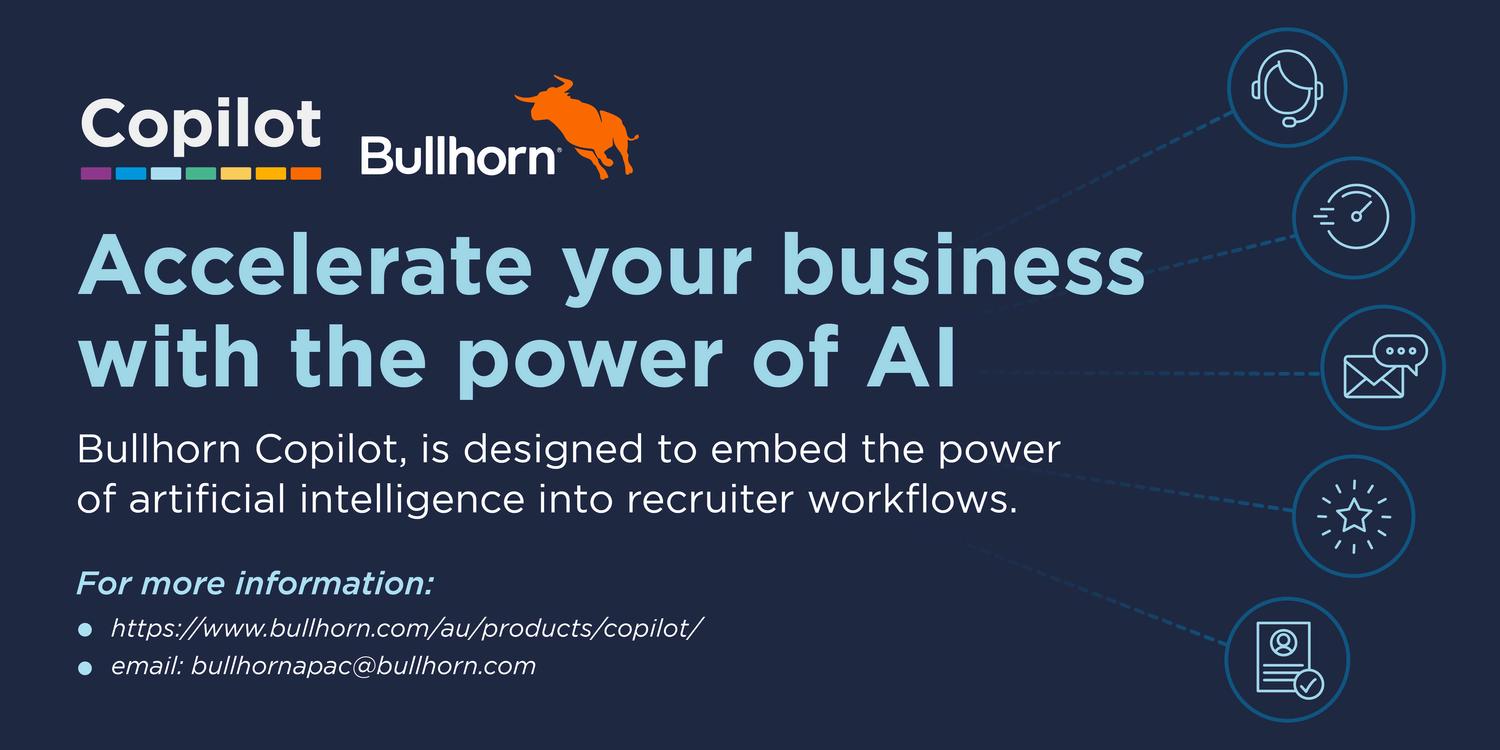
A successful recruitment agency is not just about filling roles – it’s also about building lasting relationships with your clients. In the current competitive market, differentiation is key to retaining clients and winning new business. A great way of doing so is by getting a deeper understanding of your clients through recruitment analytics. JobAdder writes.
Whether it’s reduced time-to-fill, improved candidate quality, or cost savings, recruitment analytics can provide concrete evidence of your impact on clients’ hiring objectives.
Attract and retain more clients with recruitment analytics
Imagine you were able to provide clients with real-time updates on the progress of their hires or offer insights into the most effective sourcing channels for their specific needs. Through recruitment analytics, you can tailor your communication to address the unique preferences and priorities of each client and demonstrate your commitment to accountability.
Here are three other ways you can use recruitment analytics to enhance your client relationships:
1. Delivering targeted solutions
Recruitment analytics empowers you to take a proactive approach to client service by identifying patterns and trends in hiring data. By analysing past hiring successes and failures, you can anticipate client needs and offer proactive solutions.
For instance, if your data reveals a high turnover rate among candidates sourced from a particular channel, you can work with the client to explore alternative sourcing strategies.
By presenting actionable insights backed by data, you position yourself as a strategic partner invested in the long-term success of your clients’ organisations.
2. Improving candidate quality
Client satisfaction hinges on the calibre of candidates you deliver. Recruitment analytics play a pivotal role in assessing candidate quality by tracking metrics such as applicant-to-hire ratio and performance evaluations.
By leveraging this data, your recruiters can fine-tune their sourcing and screening processes to ensure the best possible fit for your clients’ requirements. By consistently delivering highquality candidates, you will be on track for a long-term partnership with your clients.
3. Enhancing diversity and inclusion initiatives
Recruitment analytics can also play a crucial role in advancing diversity and inclusion (D&I) initiatives within your clients’ organisations.
By tracking metrics related to candidate demographics, such as gender, ethnicity, and age, your recruiters can assess the effectiveness of D&I efforts and identify areas for improvement
Analytics may also reveal disparities in the representation of certain demographic groups at different stages of the hiring process, highlighting potential biases or barriers to inclusion
Armed with this data, you can collaborate with clients to implement targeted strategies to attract and retain a more diverse talent pool
Driving client success through data-driven insights
JobAdder recruitment analytics offer a powerful toolkit to enhance client relationships and drive your own agency success.
By consistently delivering value through data-driven insights and proactive solutions, you can foster a sense of partnership between you and your clients, rather than just another service provider.
Do you recruit workers from overseas? The government is taking a tougher stance on migrant worker exploitation, Certex writes
Australia has a huge migrant worker taskforce They are often employed as labour hire workers
Over the years, migrant workers have faced significant challenges, including being exploited by employees in relation to wages, work hours, and accommodation.
According to the Migrant Justice Institute (MJI), this law is ‘a victory for migrant workers’ –‘We look forward to continuing to work with our powerful coalition, and with the government, to ensure that the implementation of these reforms creates strong new avenues for migrant workers to take action to address workplace exploitation ’
From 1 July 2024, the Migration Amendment (Strengthening Employer Compliance) Act 2024 amends the Migration Act 1958 to:
Create criminal and civil penalties for persons who unduly influence or coerce a migrant worker to:
Breach a work-related condition of their visa
Accept an exploitative work arrangement to meet a workrelated condition of their visa
Ban employers who have breached employment and migration laws applying to migrant workers from employing them in the future.
Publicly name the employers who are banned from employing migrant workers.
Source: Labour Hire Authority
For example, these new provisions will criminalise an employer who coerces a backpacker to accept unacceptable working arrangements (e g underpayment, unwanted sexual conduct, poor accommodation) under the threat of dobbing them into immigration, if they are an undocumented worker
If found guilty, the business may be added to a new Prohibited Employer List
Visit the Parliament of Australia website to find out more.
Preparing for these Changes and Assessing the Right to Work
From July 1, business can be banned from employing migrant workers if they breach relevant employment law.
Therefore, recruiters must ensure they are compliant with the latest legislation
You must ensure that your workers have the Right to Work in Australia and provide evidence if questioned
With the Labour Hire Authority conducting more investigations and handing out more convictions than ever, Right to Work has become a core area of focus in talent management.
At Certex, we pride ourselves on supporting clients to meet their legal obligations and protect their workers Our iWork Assessment is a high-level assessment of potential risks around a candidates’ Right to Work in Australia
Alternatively, you can complete the Right to Work module of the Talent Engagement Standard (TES)
At Safe Scope, our expert consultants offer a range of services tailored to your business. We have extensive knowledge and skills within the workplace. We specialise in premium analysis, claims management, injury management, return to work programs, and improving health and safety.
Our consultants specialise in comprehensive workers compensation programs and WHS (Workplace Health and Safety), assisting businesses in fulfilling their obligations and effectively managing their workers compensation costs.
Effective management of workers compensation and WHS programs can help to avoid workplace injuries, higher workers compensation premiums, and the broader impact workplace injuries can have on your people.
Safe Scope is here to help you navigate the evolving laws, premium classifications, risk mitigation, and claims processes
Mismanagement in these areas can result in increasing premiums and potentially fines, and penalties
The complex nature of Workplace Health and Safety, and workers compensation, requires the expertise of a specialist who can guide you through these complexities
Upon appointment, Safe Scope’s onboarding process involves a detailed walk through and safety gap analysis of your business followed by a report detailing our findings and recommendations.
Collaboratively, we will work towards optimising your workplace safety management systems for a safer work environment
With our hands-on management strategy and bespoke approach to customer solutions, Safe Scope stands out
We are committed to building trusted relationships with our clients, ensuring personalised service with direct access to a dedicated expert consultant.

Speak to a Safe Scope specialist to learn how we can be your partner in workers compensation and Workplace Health and Safety For an obligation-free consultation, contact the team at www safescope au/contact-us/ or 1300 776 327
Don’t take it from us, see what our clients think of our process: “Safe Scope provided an outstanding onboarding experience.
Anthony was incredibly knowledgeable and experienced, guiding us through each step with care, patience and easily understandable answers in the difficult to navigate world of Insurance. Safe Scope’s attention to detail and commitment to client satisfaction set them apart
Thanks to their exceptional onboarding process, we feel confident and fully equipped to utilise their services to the fullest ”



What’s holding you back from taking your rec firm to the next level? There’s a missing piece to your plan if you’re not working to future-proof your business. The Access Group explains.
You’re either strategising or lagging behind. Think ahead, and buy a solution built to help you grow. Whether you’re building or re-evaluating your tech stack, you must start with these 3 golden rules:
#1 Define the “why” and build an RFI
The desire to find a recruitment system that can do everything is an easy trap to fall into
Don’t get caught up with shiny new toys on the market and all the possibilities new Tech tools can offer
Before you start shopping, get organised Build a feature checklist or an RFI (Request For Information).
This keeps your CRM evaluation focused.
Considerations:
What business outcomes are you hoping to achieve?
If you’re looking to change systems, why now?
What processes are you looking to improve?
Which features are an absolute "must" for your daily rec operations?
#2 Assess overall product and business fit
As a recruiter, we know that a good candidate and client fit is critical.
Your recruitment CRM should effectively balance your business goal and customer needs while accounting for long-term growth and profitability
Any evaluation process starts with due diligence
Here are some “don’ts” before you get to the “dos”:
Check reputable recruitment or software publications for CRMs with a good name.
Research the vendor’s featured customers.
Take time to run vendor’s names past some software review sites.
Go through some testimonials available on the vendor’s website and social media.

#3 Be aware of feature gaps: Inclusion vs. Integration
Many CRMs push a heap of integrations with their product.
You might think that the right combination of add-ons could create the perfect platform. A solid platform won’t leave feature gaps like this, only to ask the buyer to make up for it with add-ons
To have the basics covered, the best recruitment CRM would have: Analytics: reporting and dashboards within the same platform
Video interviewing: increased digitisation means more tech in recruiting Automation: loads of repetitive workflows that can be streamlined and automated at scale.
Interested to learn more rules on choosing the right tech for your business, including contract traps to avoid, and more need-to-know insider tips?
Grab a copy of the CRM Buyer’s Guide for Recruiters now
Australia PEO has been granted an On-hire Industry Labour Agreement by the Australian Department of Home Affairs. This significant achievement marks a pivotal moment in our growth and service capabilities, enabling us to better meet the dynamic needs of our clients.
The On-hire Industry Labour Agreement enables Australia PEO to sponsor skilled overseas workers for a Temporary Skills Shortage Visa (subclass 482), on a temporary basis for specific occupations.
This agreement is tailored to industries and sectors where there is a demonstrated need for skilled labour that cannot be met within the Australian labour market.
What occupations can Australia PEO sponsor?
Australia PEO can sponsor skilled overseas workers for any occupation on the list of eligible skilled occupations, for periods of up to 4 years.
What this means for international and local businesses
The On-Hire Labour Agreement allows us to offer our clients a flexible and scalable workforce solution, whether they’re overseas companies wishing to retain skilled staff who are relocating to Australia, or local companies wishing to hire skilled workers from overseas.
For local companies without an existing sponsorship agreement in place, Australia PEO’s recent agreement enables them to gain access to skilled overseas workers, enhancing operational flexibility, addressing critical skills shortages, boosting competitive advantage and maintaining high service standards.
For our overseas workers, the agreement provides a clear and regulated pathway to employment in Australia, offering them opportunities to contribute to our clients’ projects and gain valuable international work experience.
This mutually beneficial arrangement promotes cultural exchange and knowledge transfer, enriching both our company and the broader community.
We are committed to adhering to the stringent requirements and standards set forth by the Department of Home Affairs.
This includes ensuring fair work practices, providing a safe and inclusive workplace, and supporting the professional development of our employees
Our adherence to these principles is integral to fostering a positive and productive work environment for all team members
The approval of our On-Hire Labour Agreement represents a significant milestone for our company
It enhances our ability to deliver exceptional services, supports our clients' evolving needs, and contributes to the broader Australian economy by addressing critical skill shortages
We look forward to leveraging this opportunity to drive our continued success and growth.
Small business tax planning can be daunting – especially when it adds to your already exhaustive To Do list. At William Buck, we’ve found that many small business owners can become so focused on the day-to-day operations of running their business that they leave their End of Financial Year (EOFY) tax planning to the very last minute, creating even more stress.
That’s why we’ve put together some small business tax planning tips to ease the burden and ensure you’re prepared well in advance of financial year-end.
Do’s
Ensure year round recordkeeping Recordkeeping is a year-round ‘do’ and can make all the difference come tax time. Submit each transaction into your accounting system and separate personal from business items.
The more you keep on top of things throughout the year, the less you’ll need to prepare in the immediate leadup to EOFY.
Similarly, if you’re practicing optimal recordkeeping, you’ll find it becomes easier each year. This is due to familiarisation as well as tech improvements.
Using intuitive accounting software like Xero, and cloud folders like Fileshare will increase efficiencies and free up time for you to spend on improving your product or service, speaking with customers and strategising.
These programs also enable document sharing with your accountants and other parties so that changes can be made in real time and document control is maintained.
Which introduces our next tip…
Invest in software training
Due to time constraints, small business owners aren’t always across the full capacity of their accounting package.
While the constant evolution of accounting software has simplified the bookkeeping task for small business owners, being unable to use the software and/or take advantage of all its functions can create inefficiencies.
Set some time aside each year for training and assess whether your accounting package is right for you.
To reduce your tax liability and maximise deductions at tax time, it’s important to review your debtors, inventories and fixed assets, and accordingly write-off any:
debts that are not recoverable stocks that have become obsolete, and assets no longer able to generate revenue
Many expenses can be written off if they have a legitimate purpose within the business Commercial rent, equipment and business travel are all able to be written off
There is also the small business $20,000 instant asset write off to consider for 2024 (subject to your business qualifying)
To be eligible, your business must have an aggregated turnover of less than $10 million It should be noted that this support for small business was announced in the May 2023 Federal Budget, however the measure is not yet law.
Make sure you take the time to forecast your likely profits and taxes that will be applicable for the year ending
Ensure that you are putting aside the cash to pay any taxes remaining and considering any additional deductions you can incur prior to year-end to keep the income down where possible
Don’t overlook key tax due dates
Due to heavy workloads and competing priorities, small business owners sometimes struggle to prioritise their tax obligations.
However, it’s highly important to prioritise these obligations or you could be hit with ATO penalties and interest. Noncompliance can also flag you with the ATO for a more detailed review or audit.
Contact a William Buck advisor or your chartered accountant to understand your tax obligations and prioritise key due dates.
Advisers should be able to assist with entering an instalment arrangement with the ATO (if required).
Don’t exercise inadequate maintenance of financial records
As already noted, it’s important to keep up with your recordkeeping year-round But it’s also important to do so correctly Proper recordkeeping provides an accurate and reliable financial position of a business, enabling the business owner to determine how it’s performing and identifying opportunities to improve Consider the following:
Lock all accounts relating to the financial year so that date remains accurate, ensuring easy transition into the new financial year, and Create a separate copy of the accounts and back it up (print key reports like P&L, Balance Sheet and general ledger listing for the financial year and store them securely).
Don’t ignore the importance of investing in expert assistance
With cost-of-living pressure and interest rates high, we’re all looking at ways to minimise our expenses.
But cutting costs on advisory services is highly inadvisable. Simply do not make an important business decision without consulting a professional because this could result in missed opportunities, non-compliance, a high tax bill or increased commercial risk.
Do not overdraw!
Finally, and this is a big one, if you have a company and you take money out of the business, make sure the net position of funds introduced less any funds you withdrew is not overdrawn
If you have taken money out of the company, work with your advisors prior to year-end to determine whether the amount represents the following: Salary and wages (report this on your Business Activity Statement)
Dividend (Dividend resolutions and statements to be prepared)
Formal loan agreement in place to meet the Division 7A requirements including the required term and ATO interest rates. If you do not get the treatment correct, you may end up with a deemed dividend that will usually be a poor outcome for the company and yourself.
For more information on any of the above or assistance preparing your tax, contact your local William Buck advisor.
If you want to learn more, we have our latest free EOFY tax and financial reporting guide available here.
The project services hiring market is fluctuating within different industries and across all states in Australia. A recent whitepaper Talent has released, details the latest trends in project management as well as the skills and experience needed to keep businesses’ projects on track.
The whitepaper features indemand project skills, salary trends, challenges currently being faced in the project services hiring market, and trends and predictions for key project positions in 2024 It also features insights from Talent’s recruitment experts’ team
Key findings include: Reduction of Project Practitioners, especially in local government, as part of an overarching strategy of reducing contract labour spend
The banking industry has reduced Project Mangers by 8%.
Competition for senior roles in Project & Change has increased across all industries with applicants getting a response to less than 10% of roles applied for.
The hiring market is correcting salaries post-the boom experienced over the last few years, however in states such as WA there has been a 5% uplift in contract rates which is set to continue throughout 2024
It’s estimated that by 2025, AI will power 95% of customer interactions
Skills in highest demand are: Data Cybersecurity AI Automation Emotional intelligence Communication Change management skills
Predictions for 2024 and beyond: AI will grow in uptake Hybrid project methodologies are gaining traction Greater focus on cybersecurity projects
Greater use of data & data analysis to improve project performance & drive efficiencies
Insights from the Talent team include:
Matthew Munson, Talent Sydney Managing Director noted, “We anticipate that the market will start to pick up again
The financial services sector, for example, had 12 months of consolidation, cost cutting and projects being put on hold
The initial signs are that hiring growth will return later in 2024 and 2025, with a number of large projects kicking off in Q4 this year.”
Steve Tompkins, Talent Head of Government Sales said, “The traditional project manager role is evolving
Enter the ‘Project Influencer’ The influencer uses EI to build human connections and understand the motivations of their team
They also use data-led logic, critical thinking, and strong communication skills to propose solutions to problems
They don’t just answer to stakeholders, they answer to their team, filling the role of sword and shield for them and fuelling a productive project team where every member feels valued and performs to the best of their ability ”
Talent Perth Managing Director, Paul Mackin Brown observes that, "As a state that plays a pivotal role, contributing around 50% of Australia's exports, WA continues to rely on minerals, petroleum, specialised manufactured goods, and agriculture
This positive scenario presents a particularly promising landscape for ICT professionals, whose skills are, and will continue to be, in high demand across most industries in WA, especially in areas like cybersecurity, business/data analysis, architecture, and software engineering "

Generative AI (GenAI) is rapidly transforming the landscape of work. While the full scope of its impact remains uncertain, one thing is clear: the recruiting industry is majorly interested in GenAI. With the potential to streamline recruitment, improve the hiring process, and more, we’re exploring ways recruiters can harness the power of GenAI in 2024. Daxtra explains.
GenAI is used across a variety of industries for things like chatbots, translations, or writing code
The adoption of AI tools to assist recruiters has grown in the last year SIA reported that Bullhorn’s GRID 2024 Industry Trends research found “more than half of recruitment firms, 55%, began experimenting with artificial intelligence in 2023 ”
GenAI excels at text generation tasks, but as the technology continues to advance, recruiting has been able to apply the tech in several ways
Here are a few ways recruiters might utilise GenAI in 2024:
Recruiters could use GenAI to summarise candidate resumes, reducing manual work and helping them better match candidates to opportunities.
Ultimately, this can lead to more efficient hiring and improved satisfaction for clients and candidates.
GenAI can craft job descriptions, job ads or copy for promotional LinkedIn posts to help recruiters write about and share more jobs at scale
Recruiters can use GenAI tools to get ideas and recommendations, making it easier to refine language and support those who are less confident in their writing skills
Recruiters could use GenAI to create personalised emails and power chatbots for real-time responses
Used correctly, GenAI can help make the most of candidate engagement tools to provide better engagement at scale, giving more candidates positive experiences with hiring
It’s important to note that GenAI in recruitment works best when it tackles tedious manual work for recruiters.
And, when selecting GenAI tools, recruiters should also consider important factors like the tool’s training data, data privacy issues and potential bias from the GenAI model.
Recruiters must thoroughly vet AI vendors to understand the tools’ development and data, and to ensure compliance with data privacy laws
Daxtra has leveraged AI for many years, and our product roadmap is incorporating GenAI-powered improvements into our solutions
It’s likely that GenAI in recruitment will continue to pick up speed, but by preparing your team and using it responsibly, you can make the most of it
Learn more about how GenAI will impact recruiting (including why it’s become popular, how to implement it and potential red flags) in our free white paper Read it today at https://hubs la/Q02CpNrT0
In an increasingly globalised economy, businesses continually seek ways to enhance their competitive edge One powerful strategy that has gained significant traction is offshoring By relocating certain business operations to countries with cost advantages, companies can access a broader talent pool and save substantial money This article by IMS People Possible, delves into the benefits of offshoring, examining how it can help businesses thrive by accessing global talent and reducing operational costs
Consider
The primary allure of offshoring lies in the vast global talent pool it opens up In many industries, local sourcing cannot meet the specialised skills and expertise demand
India and the Philippines have established themselves as hubs for tech talent, producing a steady stream of engineers, developers, and IT professionals who are well-versed in the latest technologies and methodologies and operate at a fraction of the cost of sourcing locally
Offshoring can also provide access to niche skills that may be scarce or prohibitively expensive in the domestic market.
Creative industries, such as animation and graphic design, often find a wealth of talent in countries like South Korea and Japan, where these fields are highly developed.
Another significant benefit of offshoring is the ability to quickly scale operations up or down in response to market demands
In the fast-paced business world, having access to a flexible workforce can be a gamechanger
Companies can leverage offshoring to assemble projectspecific teams rapidly, enabling them to respond swiftly to new opportunities or challenges
This scalability is particularly advantageous for startups and small businesses that may not have the resources to maintain a large, full-time staff
Specialist or skilled talent from countries like India, the Philippines, and Vietnam is significantly lower than in Western countries while delivering top-notch quality.
This difference allows businesses to employ skilled workers at a fraction of the cost, leading to significant savings.
For instance, a software developer in the United States might command a salary of $100,000 per year, while a developer with comparable skills in India might cost around $20,000 to $30,000 annually
In addition to lower wages, offshoring can lead to savings in various overhead costs
Infrastructure costs such as office space, utilities, and other overhead expenses are generally much lower in offshore locations
Companies can take advantage of these cost differentials to reduce their overall expenditure
While offshoring offers numerous benefits, it is not without its own set of misconceptions.
Effective communication is crucial in any business operation, and cultural misunderstandings can lead to miscommunication and inefficiencies.
Companies must invest in cultural training and establish clear communication protocols to mitigate this risk
Consider your offshore team as your extended team and build a strong, collaborative relationship with them to bridge cultural gaps
Businesses must implement rigorous quality control measures and establish clear standards to ensure that offshore teams deliver the same level of performance as their domestic counterparts
Regular training, monitoring, and feedback are essential to maintaining high standards and addressing any issues promptly
As the business landscape evolves, embracing offshoring can provide a crucial competitive advantage, enabling businesses to thrive in a dynamic global market
Companies can enhance their capabilities, improve scalability, and drive innovation by tapping into a diverse pool of skilled professionals
While offshoring comes with challenges, these can be effectively managed with the right strategies and partnerships
IMS People Possible is an offshoring recruitment service provider that has been working with 250+ recruitment brands for 18+ years across the US, UK, EU and APAC regions.
We know how to help you get offshoring right and avoid its common pitfalls.
Contact Mradula “Mandy” Palore at mradula.palore@imspeople.com for a 30-minute free consultation.
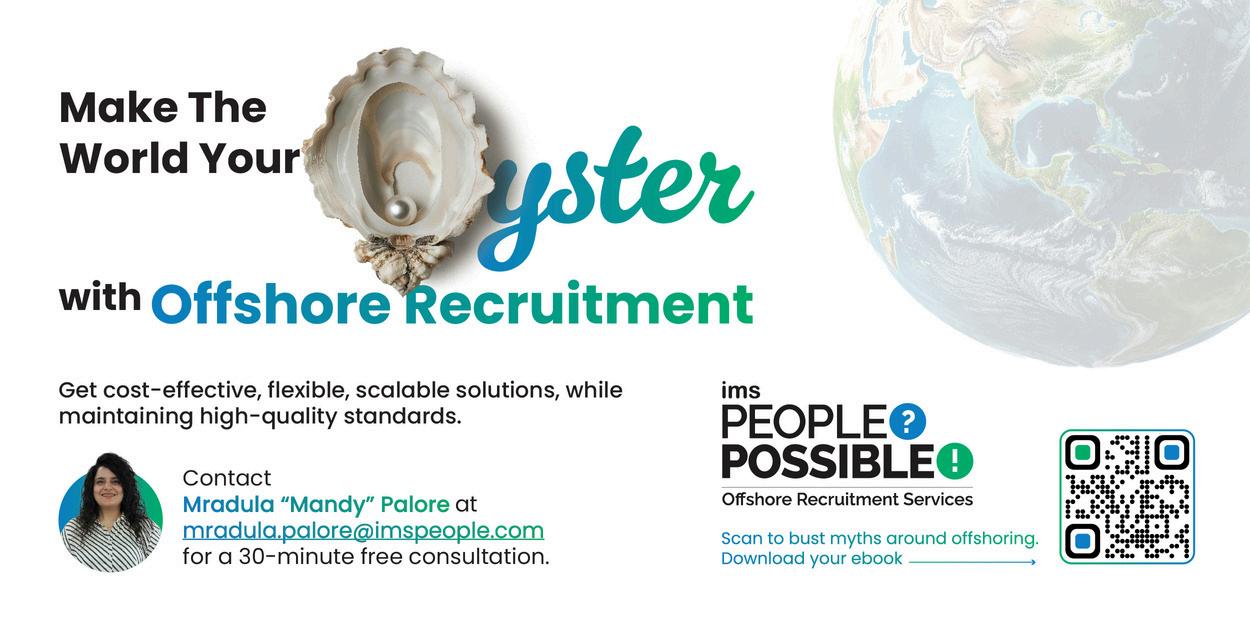
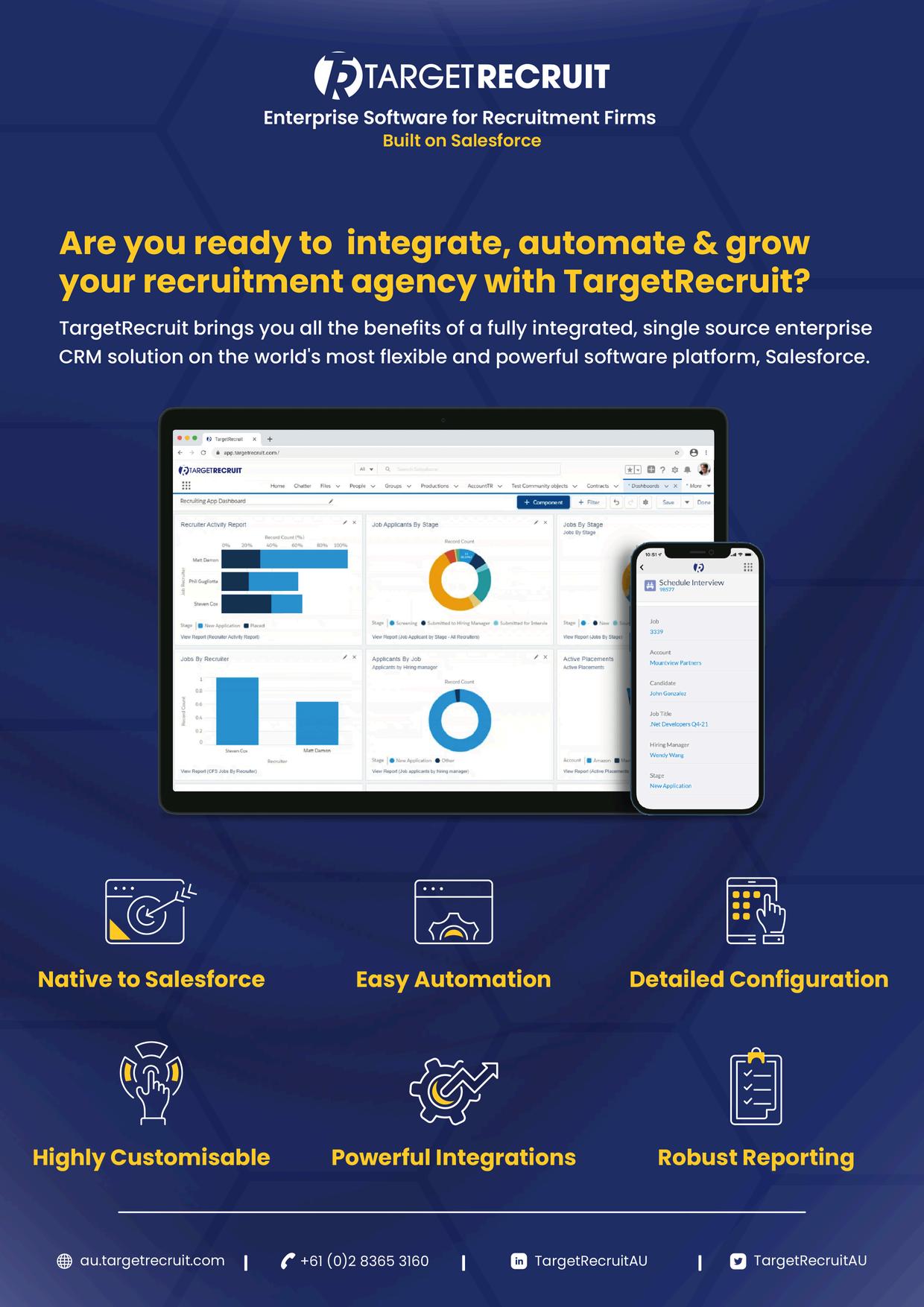


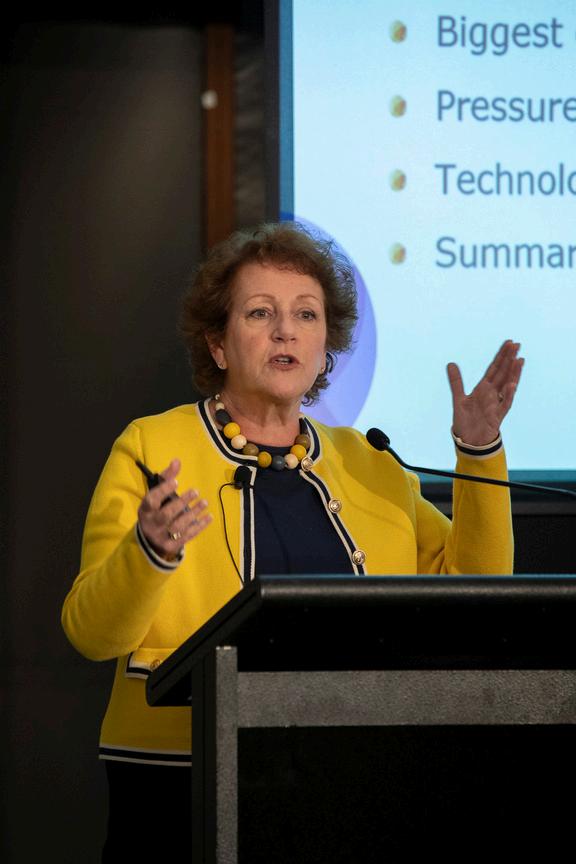
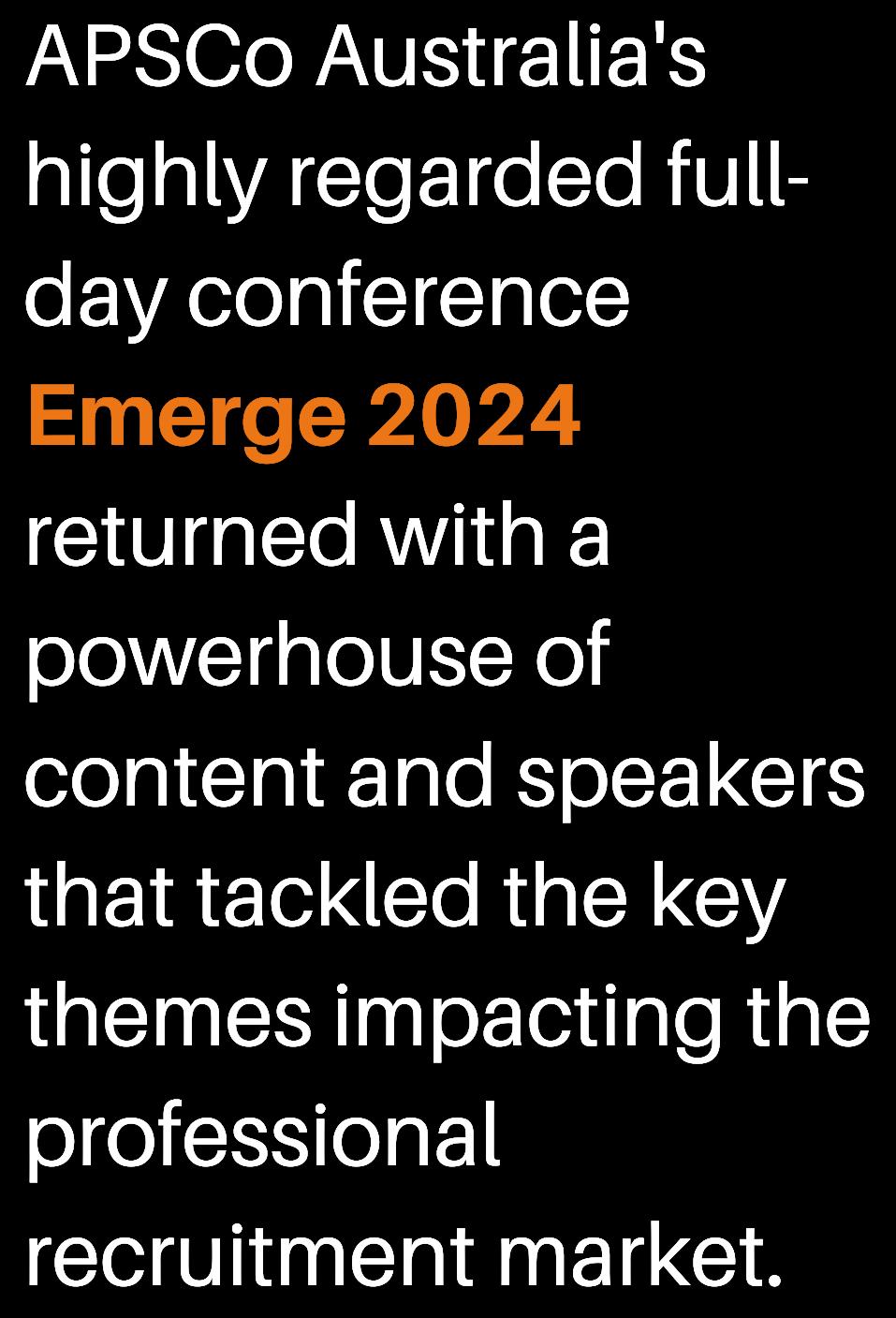 APSCo Au MD, Lesley Horsburgh
JobAdder CEO, Martin Herbst
APSCo Global CEO, Ann Swain
APSCo Au MD, Lesley Horsburgh
JobAdder CEO, Martin Herbst
APSCo Global CEO, Ann Swain


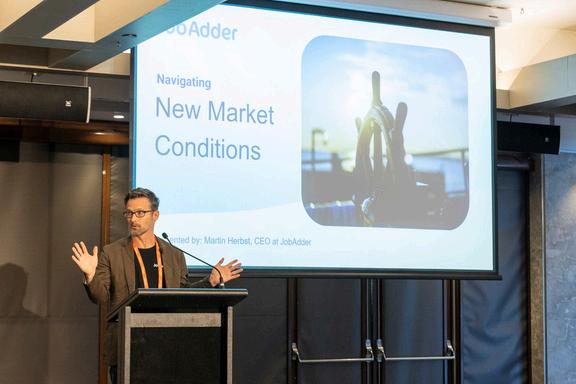







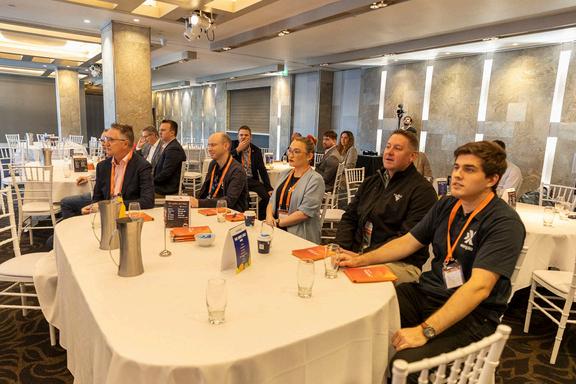




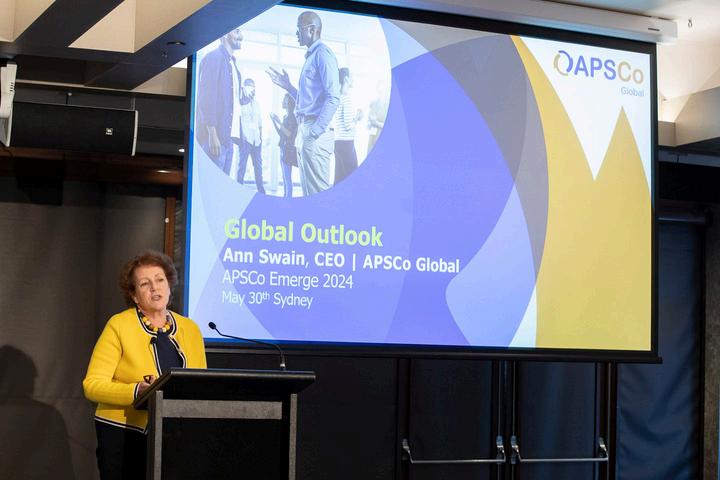

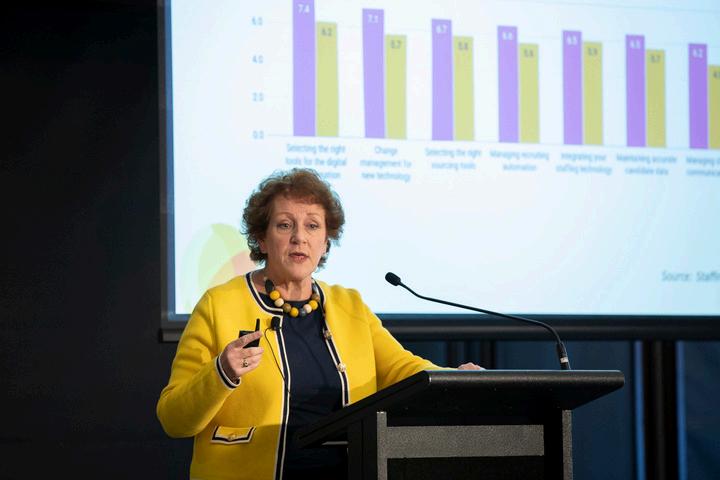


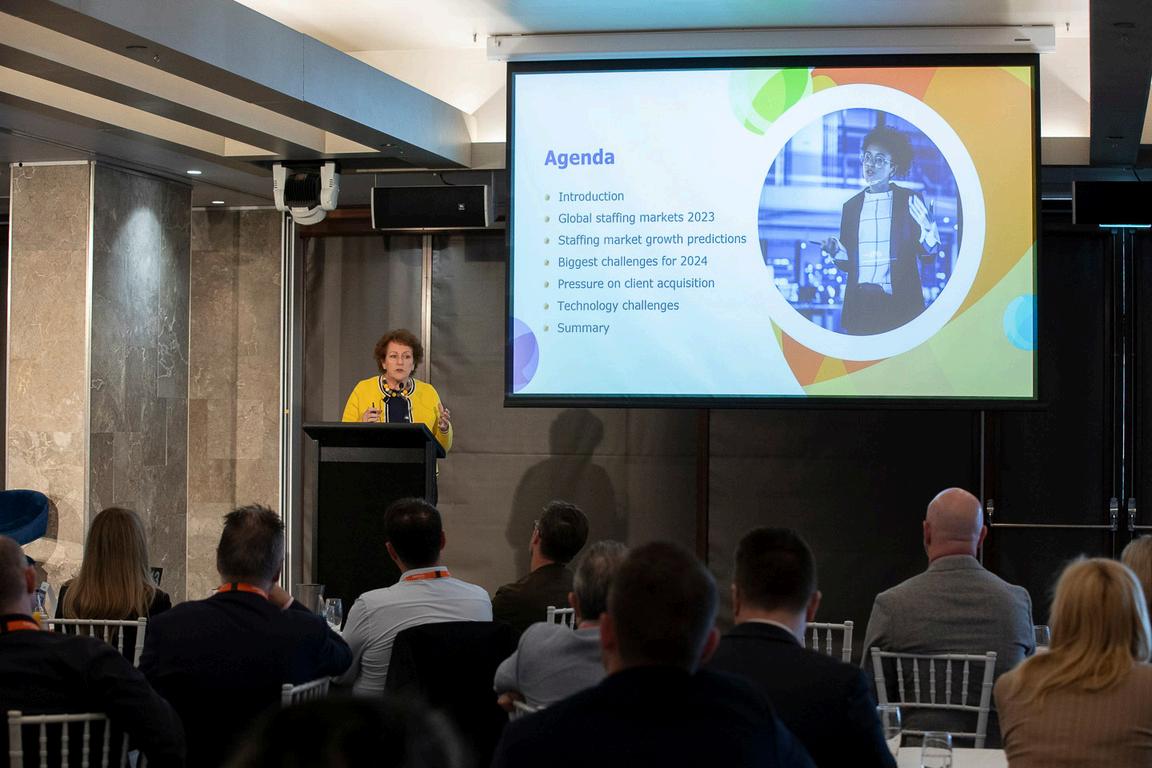
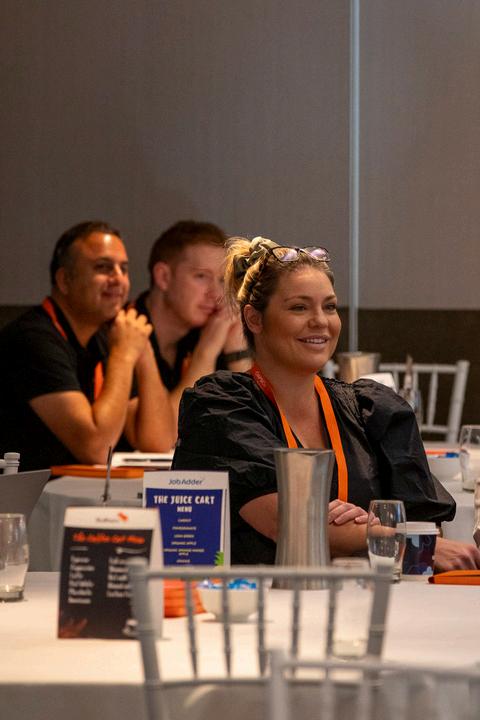


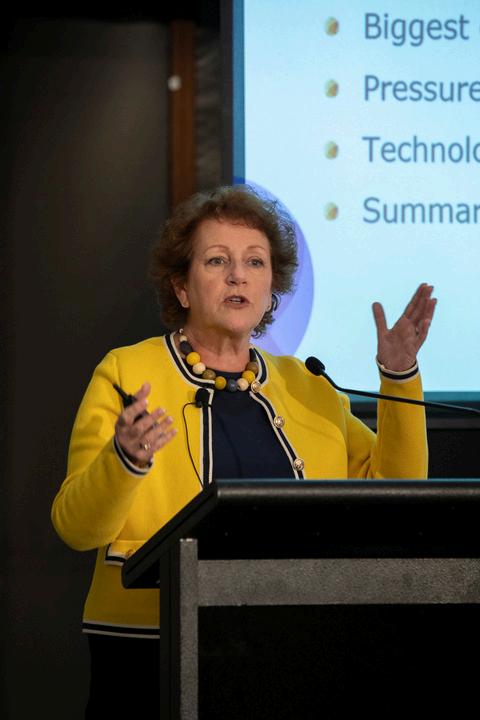





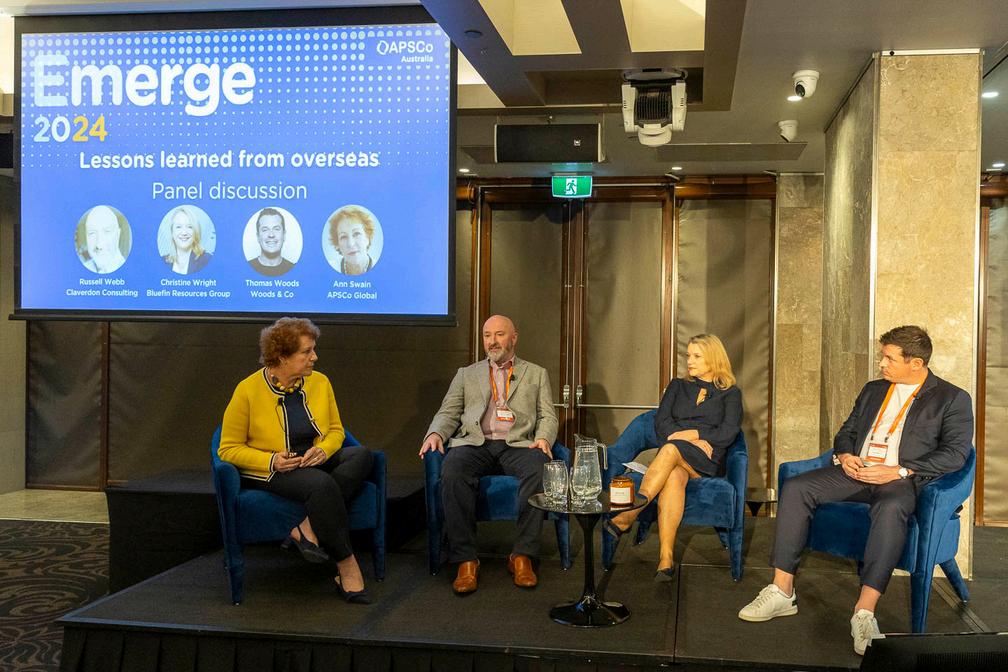

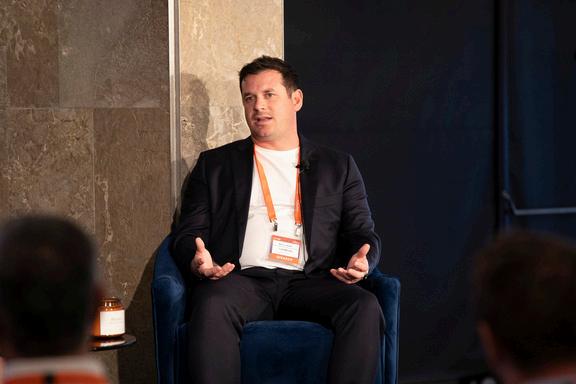


Christine
Tom
Lessons
Russell
Christine Wright,
Panel facilitator: Ann Swain, APSCo



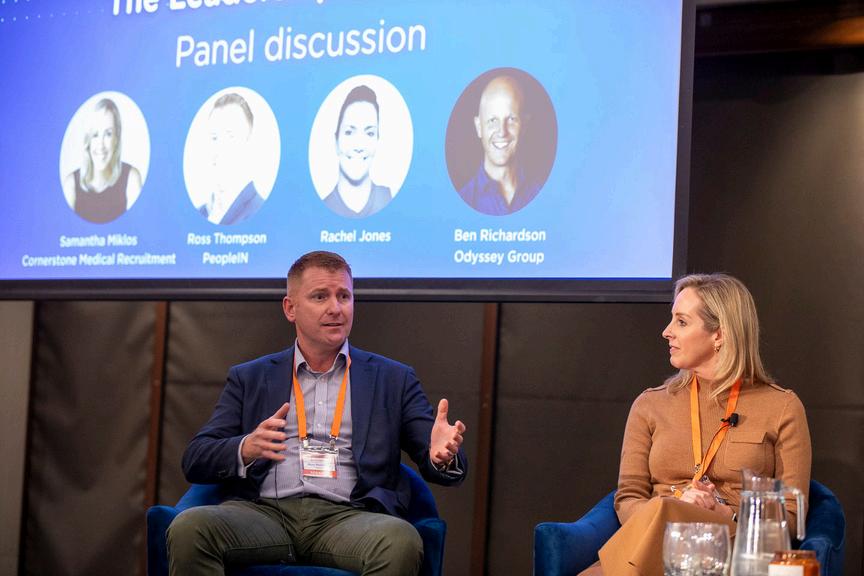





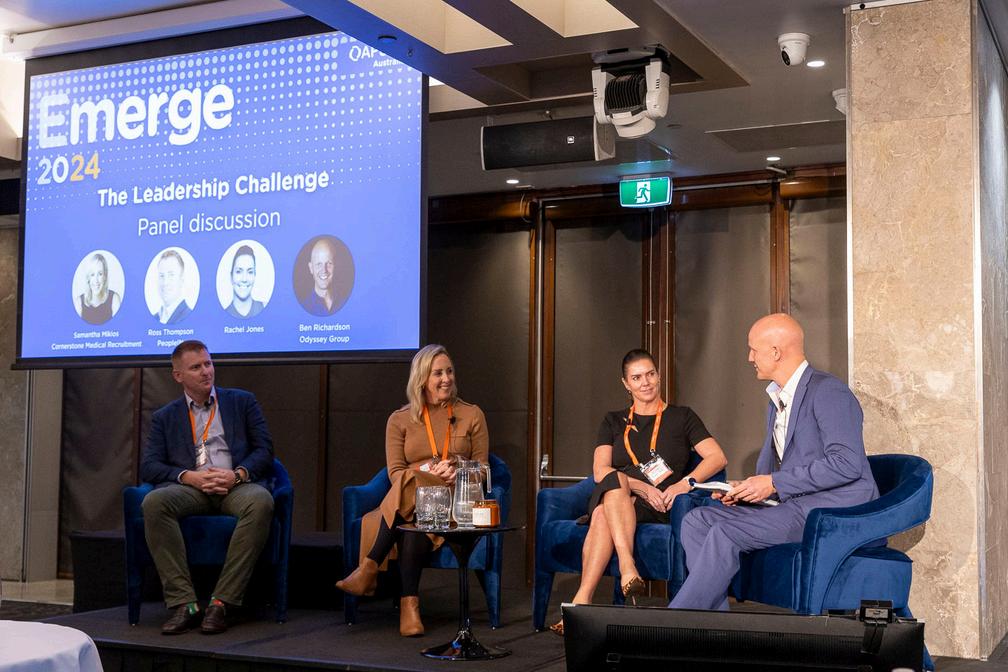

The
Audience
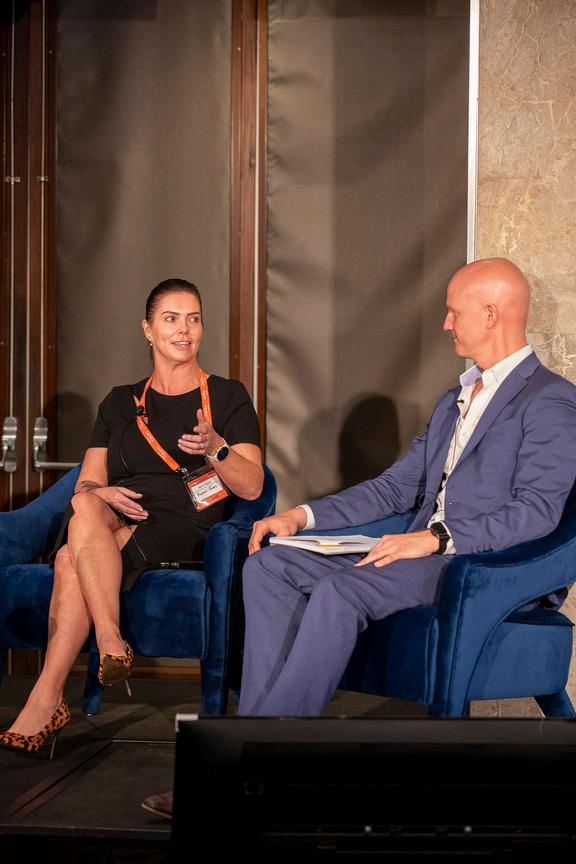




Audience
Audience
Keynote


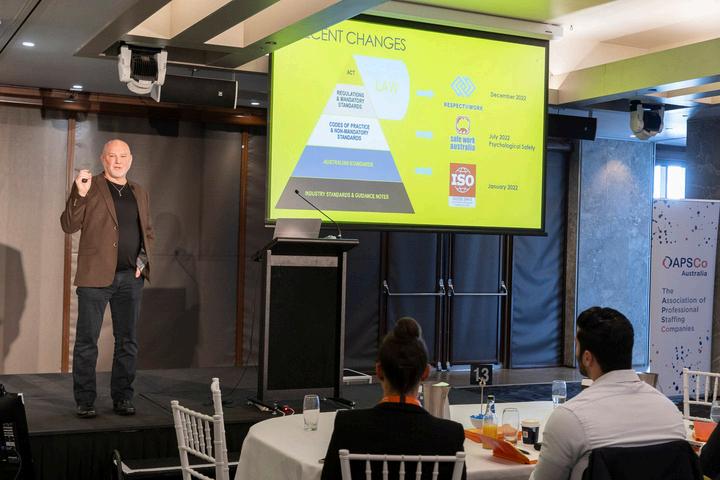



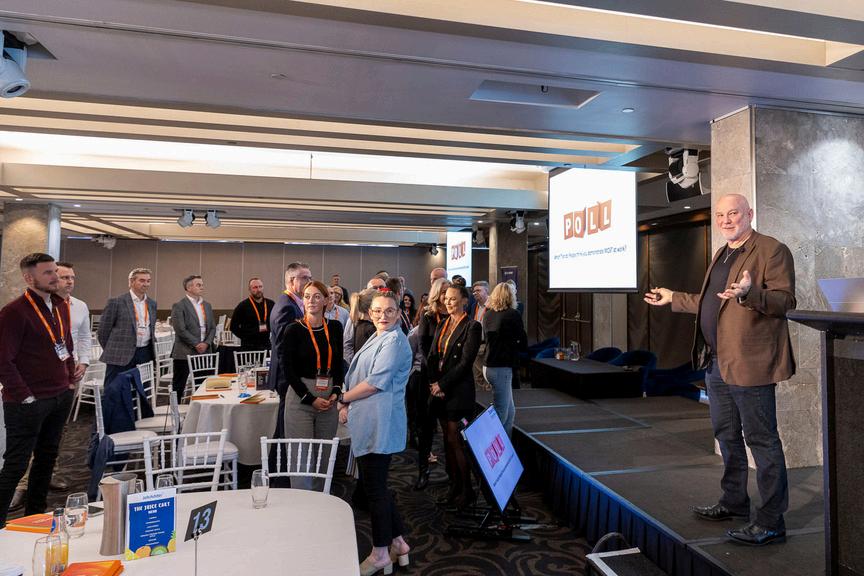




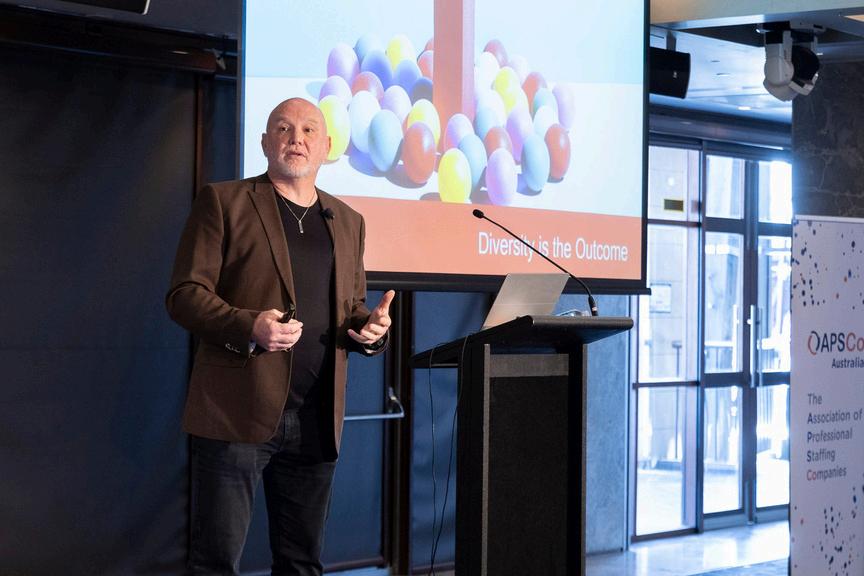

Adam

Tania
Tony
Panel



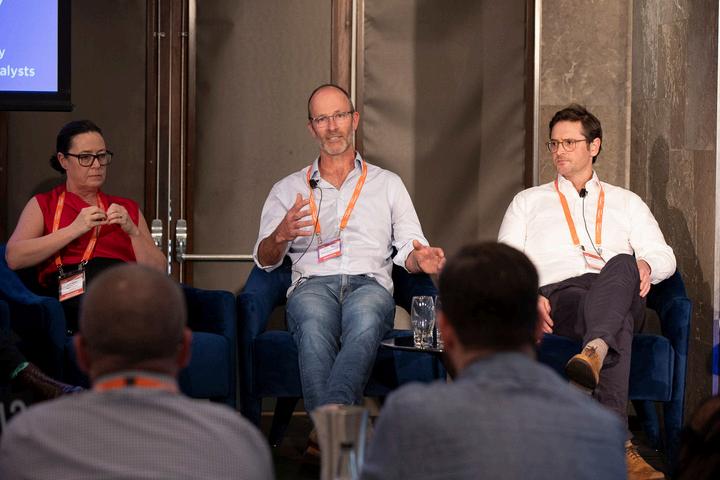

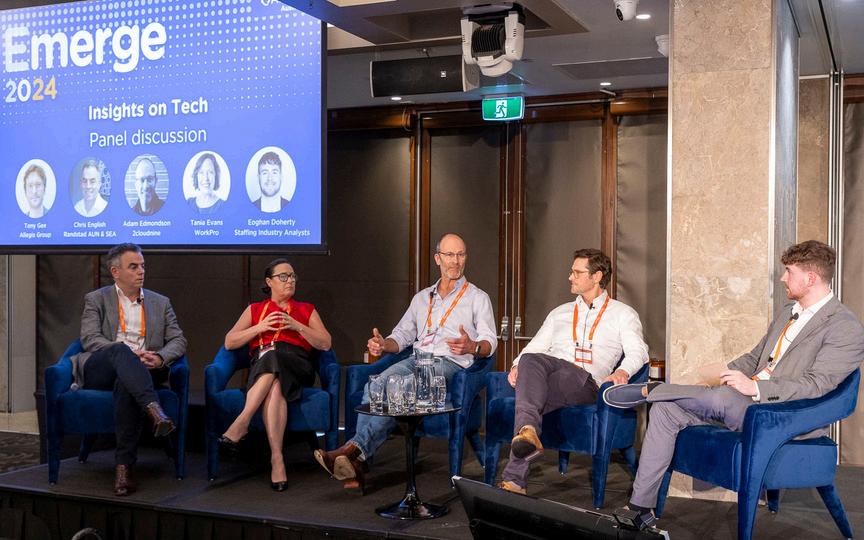

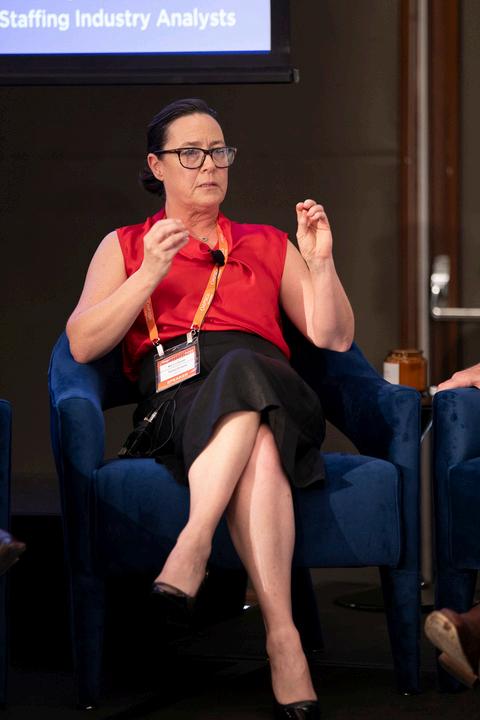


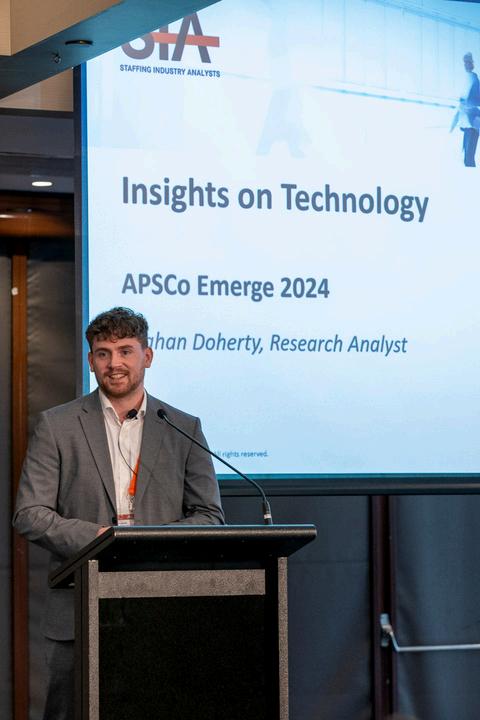


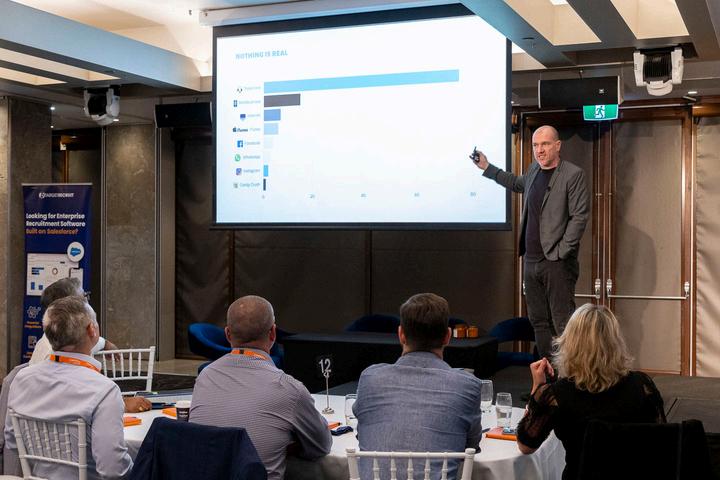








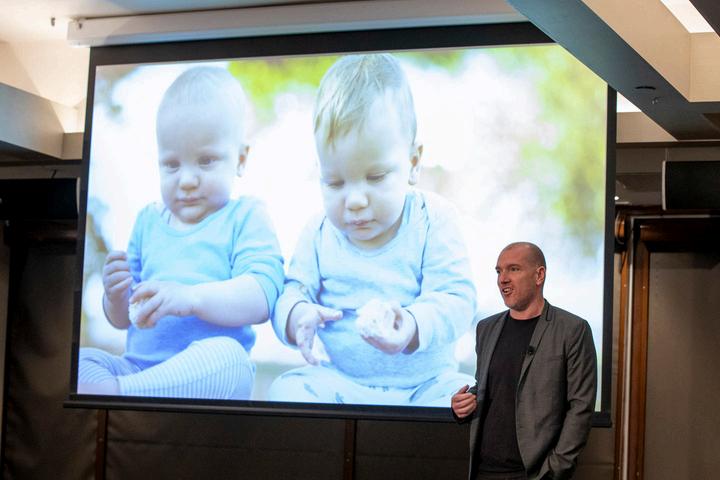
Dominic
Dominic Price, Work Futurist, Atlassian
The
Keynote Session
Audience
Dominic Price, Work Futurist, Atlassian
Keynote Speaker Dominic Price, Work Futurist, Atlassian
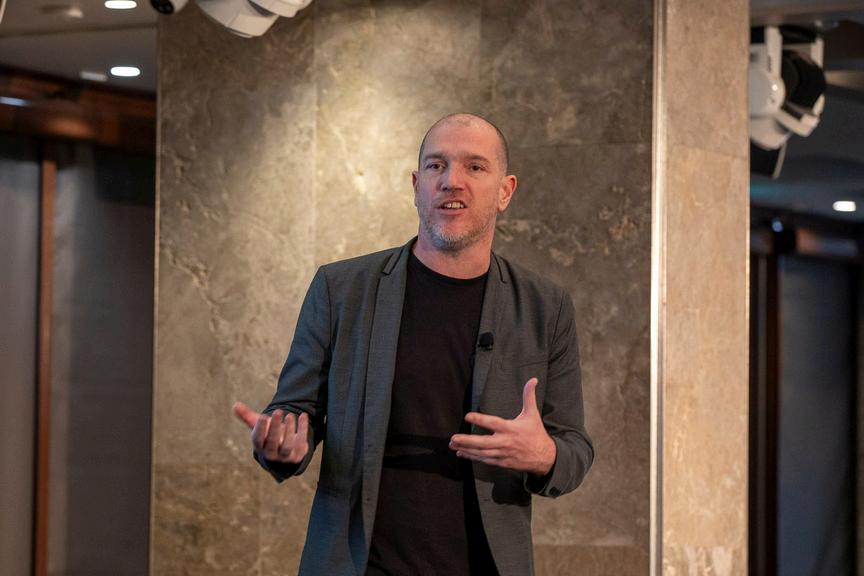

F a c e s o f E m e r g e 2 0 2 4





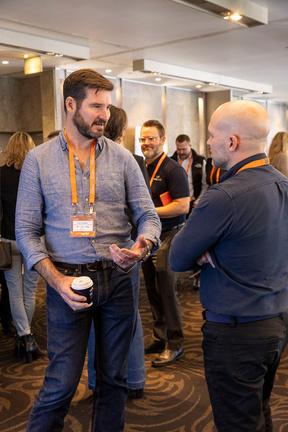

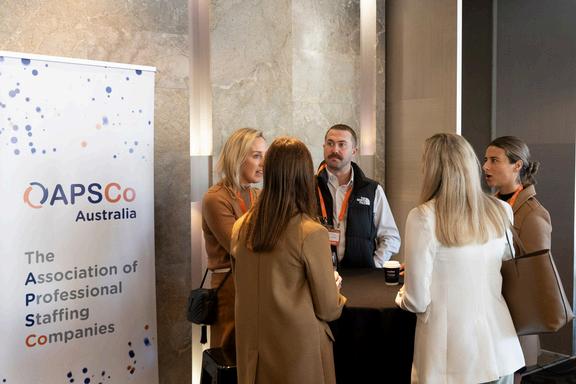



F a c e s o f E m e r g e 2 0 2 4
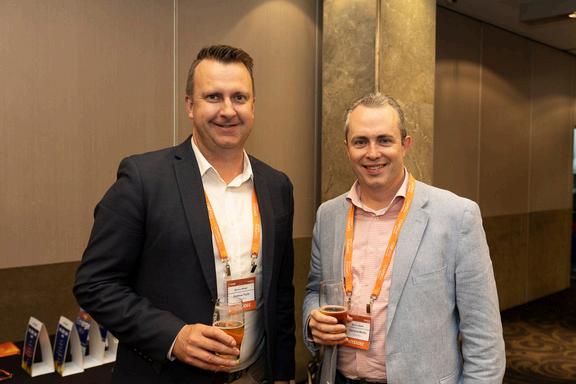
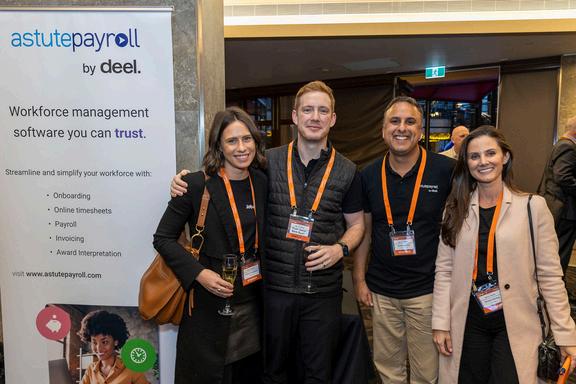

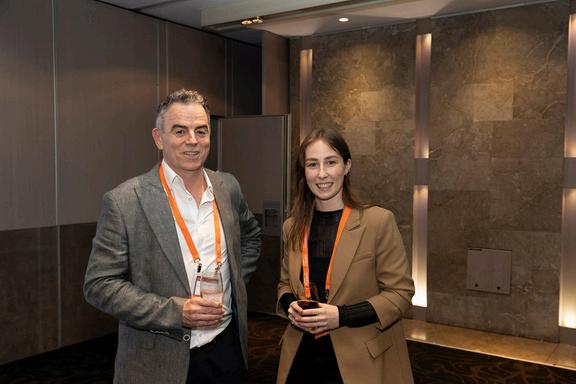
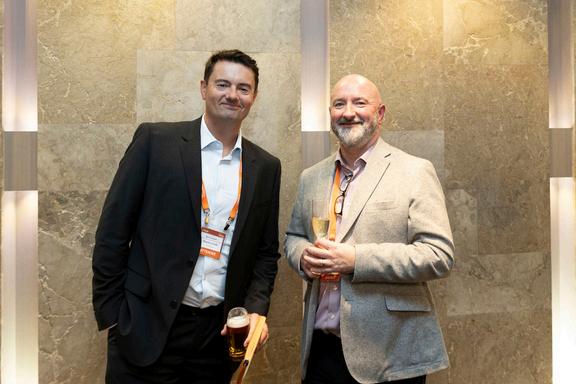
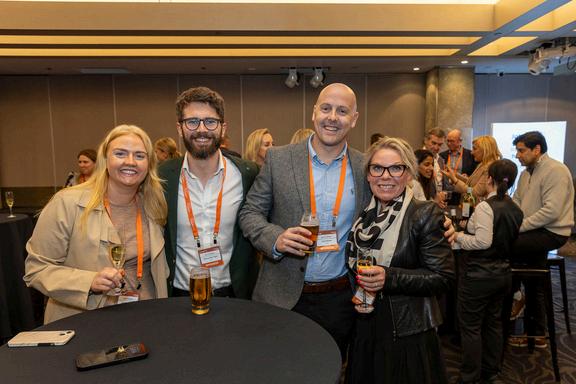









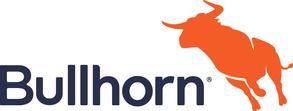








Highlight reel



